Each year, we share our 10 most-read stories. Not surprisingly, many of this year’s Top 10 focused on generative AI, adult learners, and higher-ed trends. This year’s 3rd most-read story offers a real-time look at our live EDUCAUSE 2023 coverage.
From the Educause show floor 2023: Promethean
Powered by Promethean’s patented ActivSync technology, the ActivPanel 9 responds to the evolving educational environment by breaking down barriers between devices, enabling increased connectivity and collaboration, and supporting hybrid and in-classroom learning. It provides busy, overworked teachers with the ability to create seamless workflows, design engaging and interactive lessons, customize their personal panel settings, and experience greater mobility.
7:00 p.m: eCampus News IT Leadership Dinner
Edtech executives from around the country came together to discuss what is the most pressing concern on campus—cybersecurity.
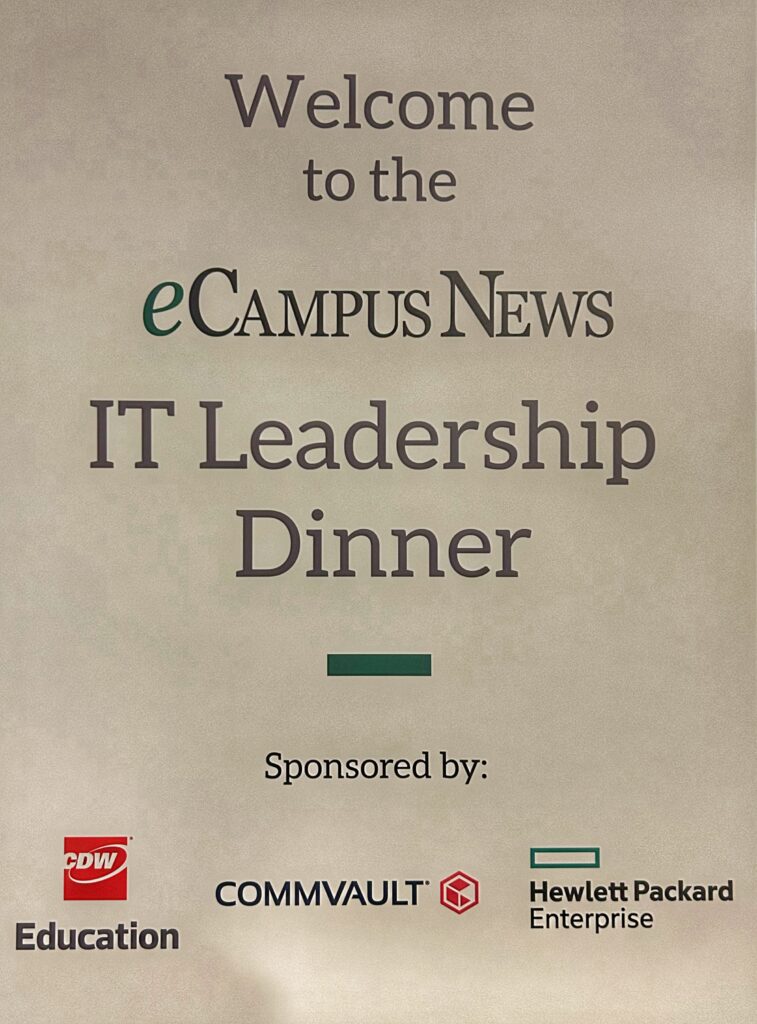






Why Higher Ed IT Leaders Need to Be Cognizant of Policy Changes
9:00 a.m.:Jarret Cummings, EDUCAUSE Senior Advisor for Policy and Government Relations, speaks to the current state of innovation in higher ed, the impacts of federal policy and government relations, and why higher ed leaders need to be cognizant of policy changes.
Key Takeaways:
- The Importance of Policy and Compliance: The conversation underscores the increasing significance of policy and compliance issues, particularly in the realm of higher education and IT. Institutions, regardless of their size or type, must navigate evolving regulations and cybersecurity concerns.
- How to Engage with Professional Organizations: Staying informed about policy changes is crucial. Institutions are encouraged to engage with organizations like Educause to keep track of policy developments, share knowledge, and adapt to new requirements effectively.
- Future Policy Trends: Jarret hints at the continuous evolution of policy issues in the higher education sector, such as cybersecurity and web/mobile app accessibility regulations. He anticipates that the regulatory landscape will continue to change, influenced by political shifts and government initiatives. For details, listen in!
Data Smart: Workforce Trends and Action Planning in Cybersecurity and Privacy
2:30 p.m.: Joseph Potchanat, Director of the EDUCAUSE Cybersecurity and Privacy Program, talks on the new opportunities for improvement and awareness when it comes to cybersecurity and shares best practices for higher ed IT leaders to stay on the defensive.
Three Takeaways:
- User Education is Key: Joseph underscores the significance of user education in higher education institutions. He highlights that cybersecurity risks, particularly ransomware, often originate at the end-user level. This includes students, faculty, staff, and contractors. It’s essential for everyone in the institution to have a good understanding of the risks they face and actively contribute to cybersecurity solutions.
- Data Minimization Matters: Joseph advises institutions to practice data minimization. By only collecting and retaining necessary data, they can reduce their exposure to potential breaches. He explains that even anonymized data can be pieced together to identify individuals, so minimizing data collection is a proactive step in safeguarding information.
- Privacy and Cybersecurity Go Hand in Hand: While cybersecurity focuses on the “how” of protection, privacy concerns address the “why.” Joseph highlights the growing importance of privacy in the field of cybersecurity. Balancing the need for security with individuals’ privacy rights is critical, and organizations should consider the implications of collecting and using personal data.
Entering An Age of Institutional Resiliency
1:30 p.m.: Betsy Reinitz, Director of the CIO and Senior Technology Leader Program for EDUCAUSE, discusses the concept of institutional resilience in higher education and its connection to digital transformation and data-informed culture.
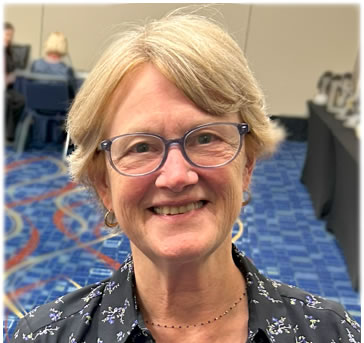
Topics include:
What is Institutional Resilience: The conversation revolves around the concept of “institutional resilience” in higher education, which refers to an institution’s ability to anticipate, respond to, and adapt to rapidly changing circumstances while maximizing opportunities and minimizing the impacts of unforeseen events. This concept emerged as a response to the challenges posed by the COVID-19 pandemic and the need for higher education institutions to adapt quickly to remote learning and other changes.
Characteristics of Institutional Resilience: The conversation highlights several key characteristics that contribute to institutional resilience. These include being trustworthy, prepared, adaptive, interdependent, decisive, and data fluent. These attributes enable institutions to not only survive challenging times but also thrive and make the most of opportunities presented by change.
The Role of Data and Analytics: The transcript emphasizes the importance of a data-informed culture within higher education institutions. Data integration, collaboration, and the use of data to inform decision-making are essential components of both institutional resilience and digital transformation. The conversation underscores that institutions need to prioritize data governance and make data-driven decisions to navigate the evolving landscape of higher education effectively.
12:10 p.m.: Watermark, a provider of software solutions for higher education, unveiled the Educational Impact Suite (EIS), a comprehensive and interconnected suite of tools that unifies organizational leadership, student success, and continuous improvement, serving as an institution’s internal compass. Grounded in the ethos of Education Impact, the EIS will revolutionize operational strategies for leaders, administrators, and faculty to maximize engagement, impact, and institutional storytelling. Digital sprawl leads institutions to spend most of their time collecting data rather than understanding it. By connecting all of Watermark’s solutions together and establishing strong integrations with top LMS and SIS systems, the EIS breaks down data silos to help institutions uncover actionable insights.
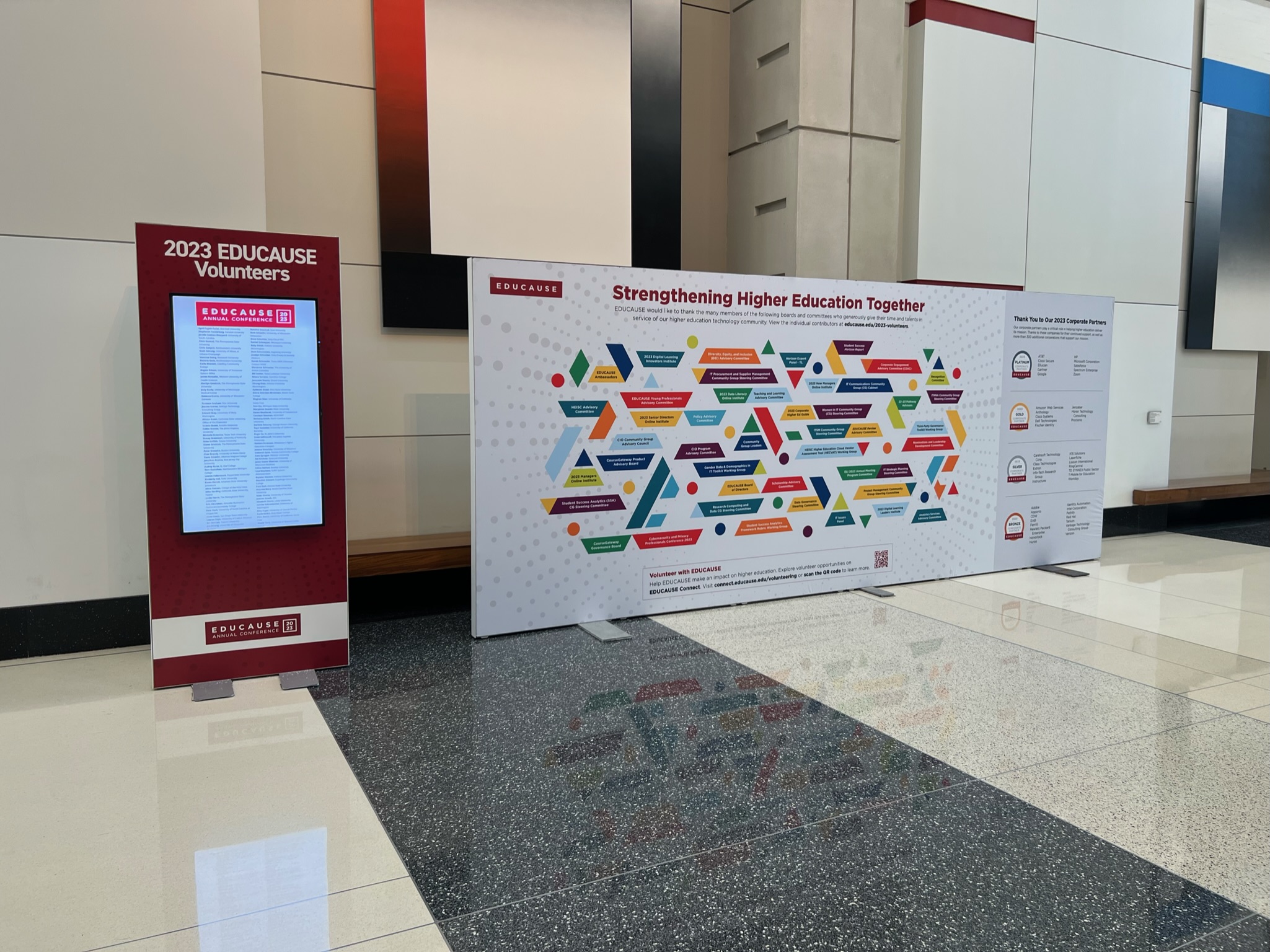
11:37 a.m.: The University of Tennessee (UT) System, Tennessee’s oldest and largest public higher education institution, is extending its use of Oracle Cloud by implementing Oracle Fusion Cloud Student (Oracle Student). With the offering, the UT System aims to streamline processes to make it easier for students to get the classes, financial aid, and support they need to succeed from enrollment through to graduation and beyond. “A new, system-wide student information system will be a key component in the delivery of a more consistent and intuitive student experience focused on service excellence, increased engagement, and enhanced student success outcomes,” said Randy Boyd, president of the University of Tennessee System. “As part of the Early Adopter Program we have been able to work with Oracle to actively help shape the direction of Oracle Student. We are confident that this investment will position the UT System at the forefront of student system technologies.”
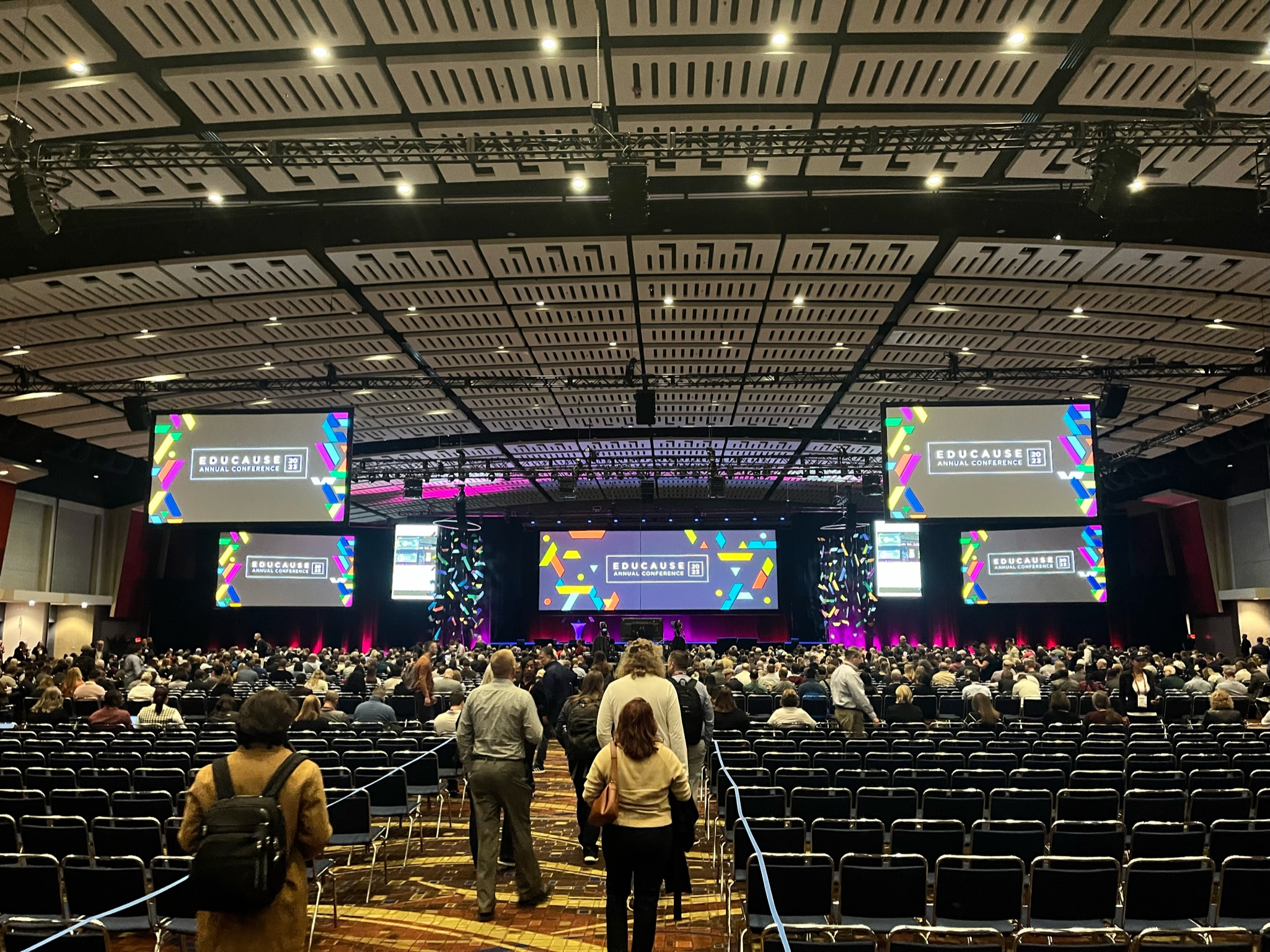
11:25 a.m.: Pure Storage announced critical new data resilience offerings, including the introduction of Pure Protect//DRaaS, a unique Disaster Recovery as a Service (DRaaS) solution, new energy efficiency guarantees for its Evergreen portfolio, and scalable AI-powered storage services via its Pure1 management platform to global enterprises. With the introduction of consumption-based disaster recovery via Pure Protect, a unique data resilience scoring system via Pure1, and updates to Evergreen subscriptions that include a new Paid Power and Rack commitment, Pure Storage enables enterprises to adopt a complete, end-to-end storage strategy that assures data resilience, reduces labor costs, accelerates sustainability initiatives, and delivers unrivaled TCO benefits.
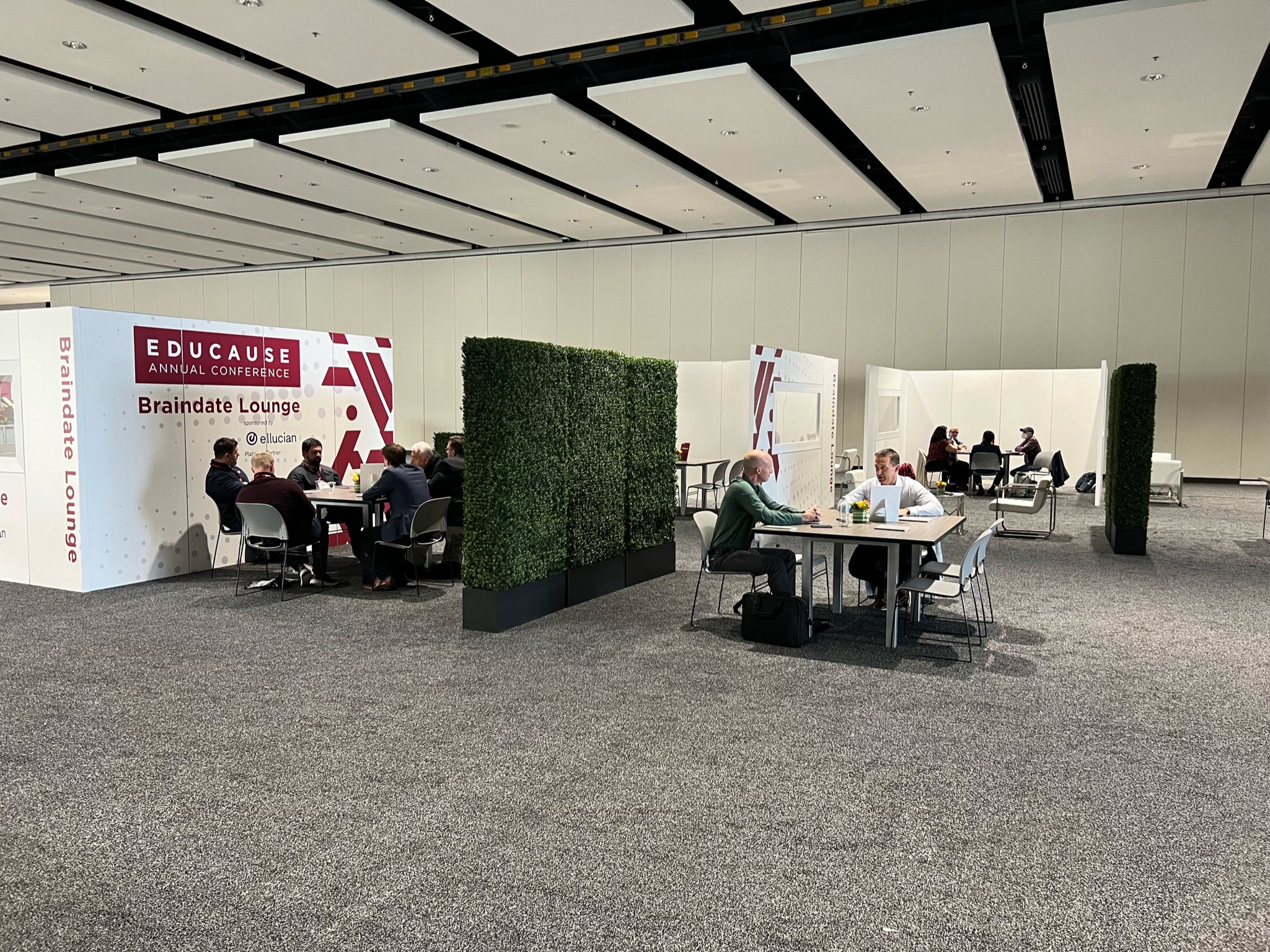
10:52 a.m.: CommScope unveiled an enterprise-class Wi-Fi 7 access point (AP)—the R770 from RUCKUS Networks. The platform will utilize the advanced capabilities of Wi-Fi 7 coupled with RUCKUS patented innovations to deliver the best possible performance in the most challenging environments of the industries we serve. This AI-driven solution, the newest member of the RUCKUS portfolio, provides an elevated option for purpose-driven networks. The RUCKUS R770 is currently being beta tested by lead customers with production shipments beginning in December 2023.
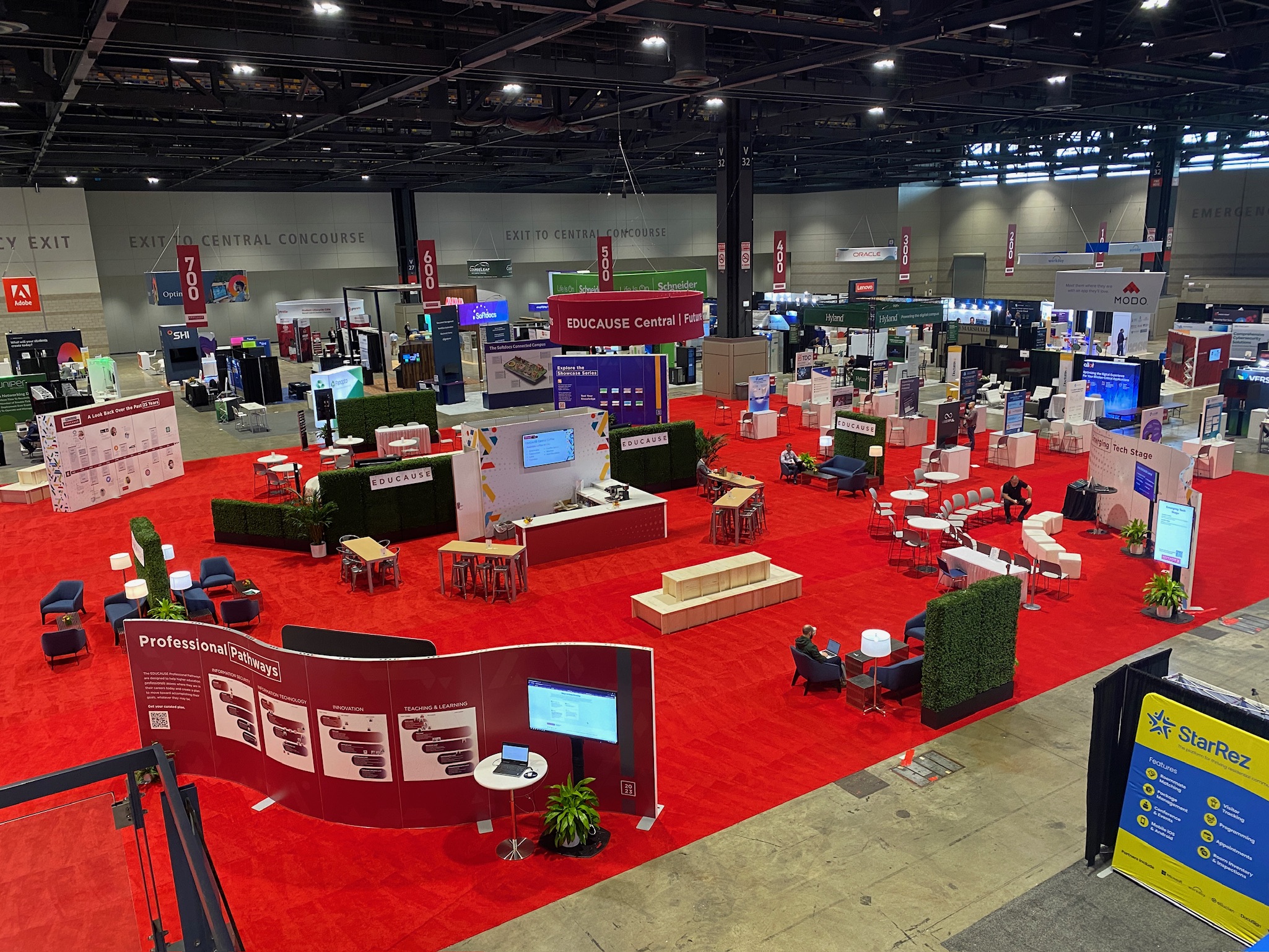
10:50 a.m.: Your institution could be sitting on a pile of cash! IPv4.Global launched a valuation tool for the higher education industry: Find Your IP allows universities and colleges to fully discover the addresses they own. With just one click on an interactive map, users can click a state and see a listing of schools with IPv4 holdings. If a school has IPv4 addresses, users can request a free inventory of the addresses and receive an estimate of their market value. Stop by booth #225 to find out if you haveIPv4 addresses that could send some funding your way.
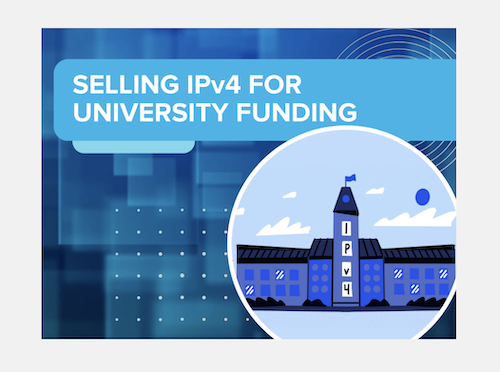
10:30 a.m.: Instructure, maker of Canvas LMS, released the results from its annual global 2023 State of Student Success and Engagement in Higher Education report, in partnership with Hanover Research. The study encapsulates current trends and movements within higher education and critical drivers of student success and engagement. Key findings include a preference for more certificate and apprenticeship programs, the ongoing need for mental health support for students and educators and a continued concern over education accessibility.
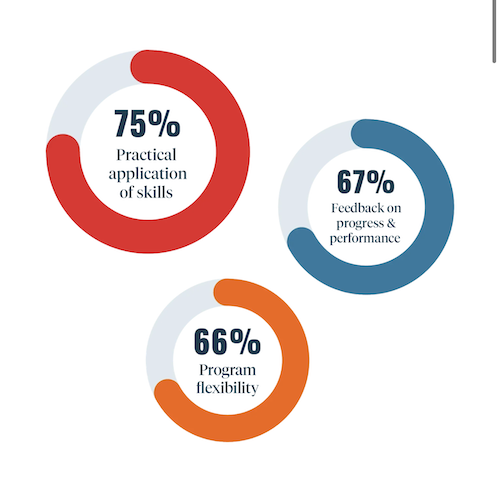
8:45 a.m.: You can’t get much more nerdy than this. Research firm listedtech has gathered all EDUCAUSE floor plans and exhibitors’ lists since 2012 to divine some trends in the higher ed tech market.
Four short highlights from the report:
*Once vital to higher education, the Publishing industry no longer appears to select big booths.
*The Hardware industry is another example of the transformation of the higher education IT sector. When comparing campuses from 2012 to 2021, we know that computer labs take up less and less space on higher education campuses as students bring their laptops.
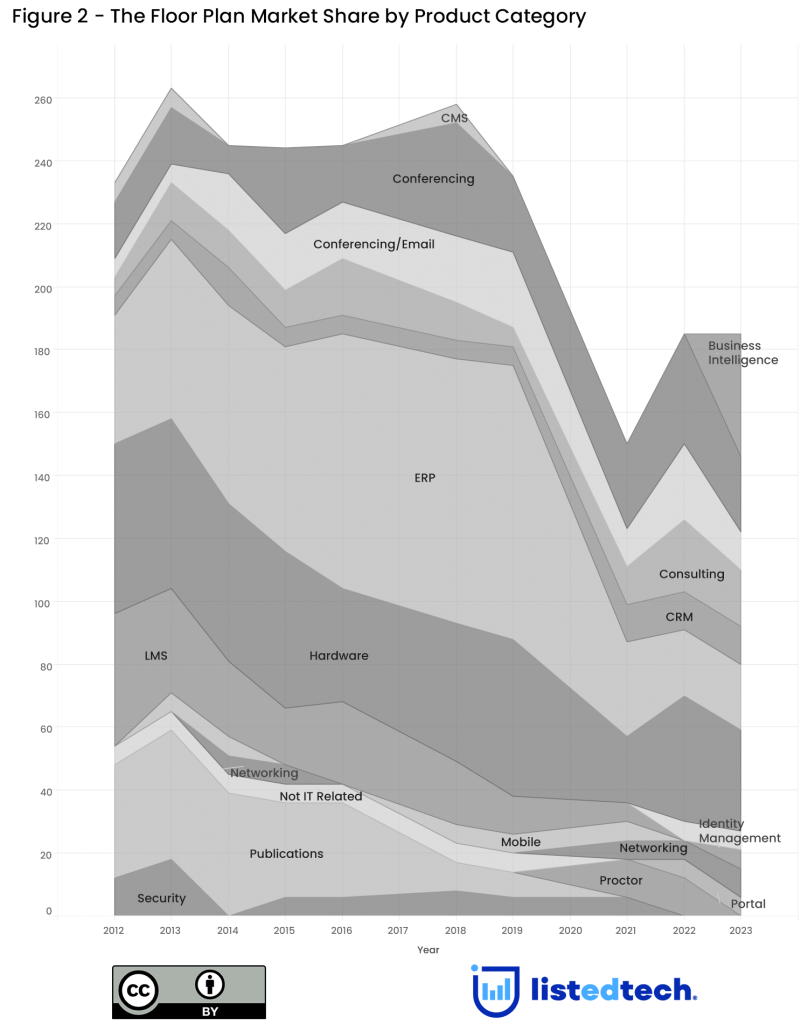
*The Conferencing category did benefit from distance learning during the pandemic. This rapid growth in the product group resulted in new companies on the floor plan.
*Pre-pandemic, the ERP product category was the most stable. Anthology (previously advertised as Campus Management and Blackboard at Educause) and Ellucian have had two oversized booths since 2012.
Be sure to read the full report here.
7:45 a.m.: Expert panel members are preparing to discuss the implications of the spread of generative AI, a proposed research agenda to continue to understand its impact on higher education, and the most important institutional capacity areas needed to be prepared for the inevitable institutional disruptions caused by these new tools.
Up front are Kathe Pelletier, Director, Teaching and Learning Program, EDUCAUSE; Beth Ritter-Guth, Associate Dean, Online Learning & Educational Technology, Northampton Community College; Scott Smith, Instructional Technology, Northern Michigan University; and Brian Basgen, CIO at Emerson College.
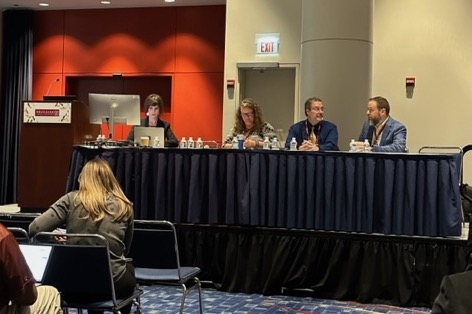
Looking for the go-to spot for highlights of the topics, speakers, and technologies showcased this year in Chicago October 9–12? Set your bookmark tab right here and listen to Content Director Kevin Hogan break down how eCampus plans to cover the show.
What is EDUCAUSE:
EDUCAUSE is a nonprofit association whose mission is to advance higher education through information technology. EDUCAUSE helps those who lead, manage, and use information technology to shape strategic decisions at every level. The annual EDUCAUSE conference serves a wide variety of individuals, including IT professionals and academic technology professionals, but increasingly the success of IT depends on strong connections with other campus stakeholders. They help leaders identify new and innovative ways to advance higher education. Event options are both in-person and online.
What to expect:
- The Innovation in Education Podcast will set up shop and record in person from the Educause press room. Guests will include Betsy Reinitz, Director of the CIO and Senior Technology Leader Program, who will share thoughts on the age of institutional resilience that higher ed institutions need to be heading into, along with how an institution can build a data-informed culture on campus; Jarret Cummings, Senior Advisor for Policy and Government Relations, will speak to the current state of innovation in higher ed, the impacts of federal policy and government relations, and why higher ed leaders need to be cognizant of policy changes; and Joseph Potchanat, Director of the Cybersecurity Program, will share his thoughts on the new opportunities for improvement and awareness of cybersecurity, sharing best practices for higher ed IT leaders to be data smart.
- Highlights from selected sessions and panels. Check out the agenda schedule.
- A virtual tour of the exhibit hall with show floor interviews of some of the 250 technology solution providers.
When to expect it:
Coverage of the event itself begins in real time Tuesday, October 9 through October 10. Post-show analysis will continue to be posted here throughout the month of October. Scroll below for some preview content already creted by the eCampus News team. Hope to see you at the show!
Related:
Welcome to Educause 2023
For more news on EDUCAUSE, visit eCN’s IT Leadership page
- Report forecasts a ‘surge’ in GenAI adoption - April 26, 2024
- Where are microcredentials today–and where are they going? - April 22, 2024
- First-generation students are more likely to seriously consider leaving college - April 17, 2024




